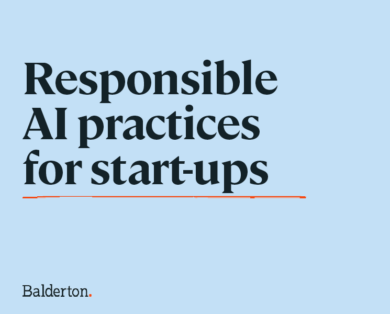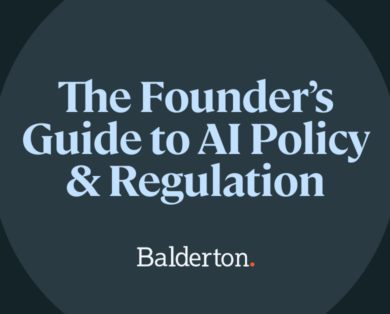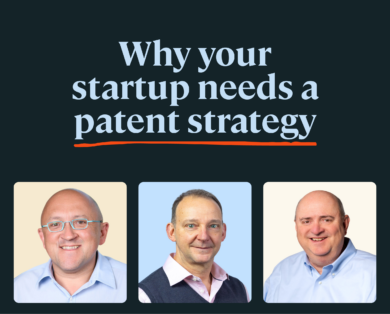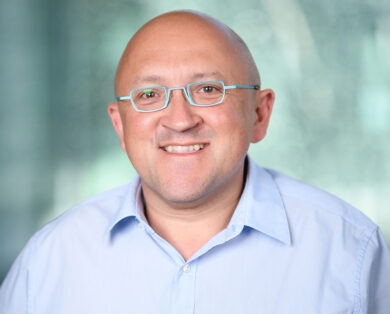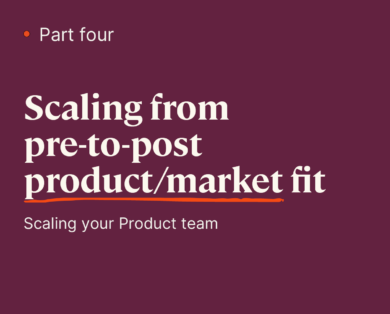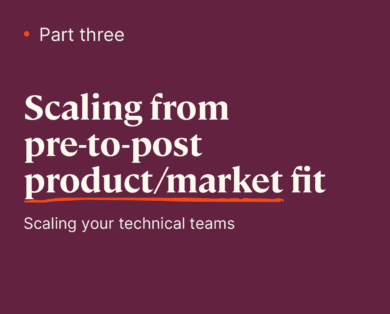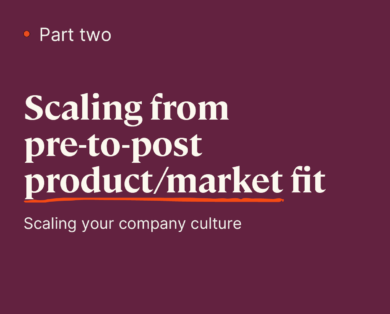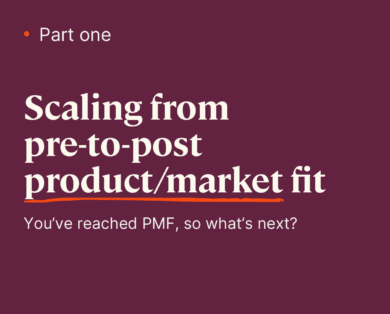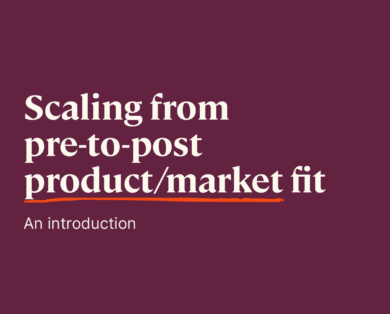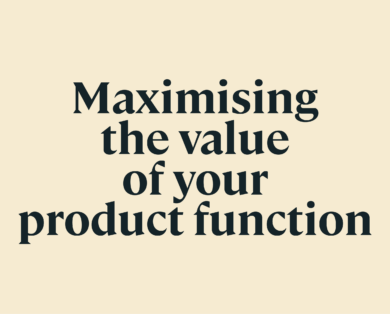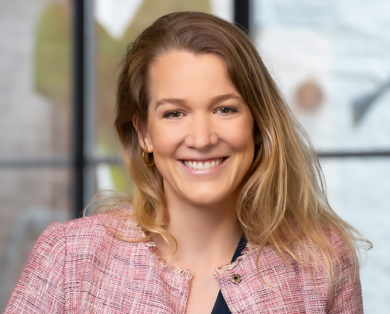- 20 November, 2024
Suranga sits down with Contentful founder Sascha Konietzke to reflect on his company’s fundraising journey
As the news breaks today on another round of financing for our portfolio company Contentful, less than 18 months since the Series D in late 2018, I sat down with Sascha Konietzke, Founder and Chief Strategy Officer last week to reflect on the company and its fundraising journey to date. The company has raised a total of around $150M over six rounds but, even for a company that is now one of Germany’s most valuable enterprise start-ups, fundraising has always been a rollercoaster.
Contentful’s Seed round – Why VCs make exceptions
Founded in Berlin but unequivocally international from day one, Contentful was founded by Sascha Konietzke and Paolo Negri seven years ago.In 2012, Balderton led a seed investment in Contentful, alongside Point Nine Capital.
Seed is earlier than our typical Series A focus, but we make exceptions. In this case, the exception was partly rooted in the founding team – Sascha was an active practitioner in building content experiences and we knew Paolo as one of the early, highly-rated developers at an existing portfolio company, Wooga.
But it was also driven by my partner Roberto’s deep conviction in the market opportunity. No one had a name then for what would become ‘content infrastructure’ or ‘the headless CMS’, but the concept of a highly adaptable way of accessing content programmatically, empowering engineers to build digital experiences just made sense to us. Like any industry, focus is important in venture, but it is crucial to be brave enough to break the rules every now and then.
Like any industry, focus is important in venture, but it is crucial to be brave enough to break the rules every now and then.
Series A – Disruptive companies with challenging metrics can find it hard to raise capital
The software as a service (SaaS) investment market is utterly obsessed with analysis by metrics. Every CEO knows their gross and net growth, their churn dynamics, aims for high net revenue retention and so on.
However, when your business is small (say revenue is less than $1M) you can only have statistically meaningful metrics if you sell a low-price product.
While Contentful has a free tier for developers, it is a true enterprise company – selling a relatively small number of relatively large deals.
These were frustrating times. We had early signals our disruptive technology was getting picked up, but it was lumpy and many investors wanted to see ‘easy’ SaaS metrics that just went up and to the right and we just didn’t have that yet.
Sascha Konietzke
Happily, as existing investors in the company, we felt really good about the progress the team had made and had the conviction to lead the Series A, despite the company’s as-yet minimal traction.
If your company is truly disruptive, find venture investors who are deep on product and technology and understand what you are actually doing vs financial investors who limit their analysis to key metrics and financials.
If your company is truly disruptive, find investors who are deep on product and understand what you’re actually doing vs financial investors who limit analysis to key metrics and financials.
Series B – Challenging markets conditions can derail any fundraising process
In early 2016, it was time for the company to raise its next round of financing. I have always believed it takes a village to build a great company and, now on the board, was keen to introduce Contentful to other investors I knew from my time in the Bay Area.
Though the team was in Berlin, the ground-up sales model meant that over 75% of revenue was already coming from the US and so we connected Sascha with a number of excellent US investors. By this point the company had stronger metrics and, I remember Christoph Janz and I swapping emails, confident we would raise this round straightforwardly.
Unfortunately, it was not to be so. It turned out that this period coincided with a drop in global SaaS multiples on the stock market and investors went cold, nervous of a bigger crash. The top tier investors chose to wait and see and so we existing shareholders decided to bridge the company with a convertible loan. This was a hard time for the company.
The sentiment of external markets had a huge influence on fundraising success. We were showing really good progress, but it was hard to build excitement. However our strong belief that we were building a better way to manage content kept us going. It was also really important that we had shareholders who understood this. As you know, Balderton and Point Nine stepped up and were able to do a convertible at this point, extending our runway. This took away the pressure and gave us time to close further big deals.”
Sascha Konietzke
This ended up working out well – as the market improved, a number of the people we had met reached out again and Eric at Benchmark moved quickly to win over the team to lead the Series B in mid-2016.As always, when markets are rocky and visibility uncertain, it is really important to have a team, and investors, that are driven by long-term conviction.
When markets are rocky and visibility uncertain, it is really important to have a team, and investors, that are driven by long-term conviction.
Series C – Investing in lines, not dots
In his fantastic blog on the importance of building long-term relationships between investors and companies, Mark Suster talks about the value in getting to know investors across multiple rounds of financing. Sascha had always been careful to build long-term relationships with investors and a number of investors who had spent time with him at Series B now re-connected with him at Series C. In this case, the team had already built a strong relationship with Trevor at General Catalyst and really wanted an excuse to work with him more formally and so while they spoke to other investors, Contentful’s Series C round in late 2017 happened very quickly and very smoothly.
Investors invest in lines but smart founders find investors in lines too.
Series D – Local investors for a global company
By the time Contentful was ready for its Series D round, the company was executing well at scale, allowing Sascha and Paolo a large range of investment options. They made a smart move picking Sapphire Ventures as their lead Series D investor – partly for their strong enterprise DNA (Sapphire’s roots are as SAP’s internal venture arm) but mainly for their genuinely global footprint, with the firm being headquartered in the US (Contentful’s largest market) but with German roots and, in Andreas, a Europe-based lead investor.
But they also welcomed investors with deep Valley roots to the round – both Salesforce Ventures and OMERS Ventures. Their choices of investor continued to reflect the company’s global mindset.
Sometime between 2016 and 2018 the company made a real commitment to its global footprint, and were very thoughtful about how they went about it. While they had decided that Berlin was an excellent place to build product and development, they also knew they needed a team in the Bay Area to tap into the go-to-market expertise there.
I had spent time in the US before we founded Contentful and we just always built it as an international company from day one. We didn’t even have a German version of our marketing materials until very recently. It helped that we started in [the very diverse] Berlin – from the early days our company was very international, Paolo couldn’t even speak German, our board always had international VCs like Balderton and we also knew that selling a disruptive software product was easier in the US where companies are more likely to take a risk on something new.
Sascha Konietzke
Local investors means more engagement. Seed investors in the same country as you, Series A investors in your continent and, as you go global, investors in all of your key markets means you have help wherever you need it.
 SURANGA CHANDRATILLAKE
SURANGA CHANDRATILLAKE 
